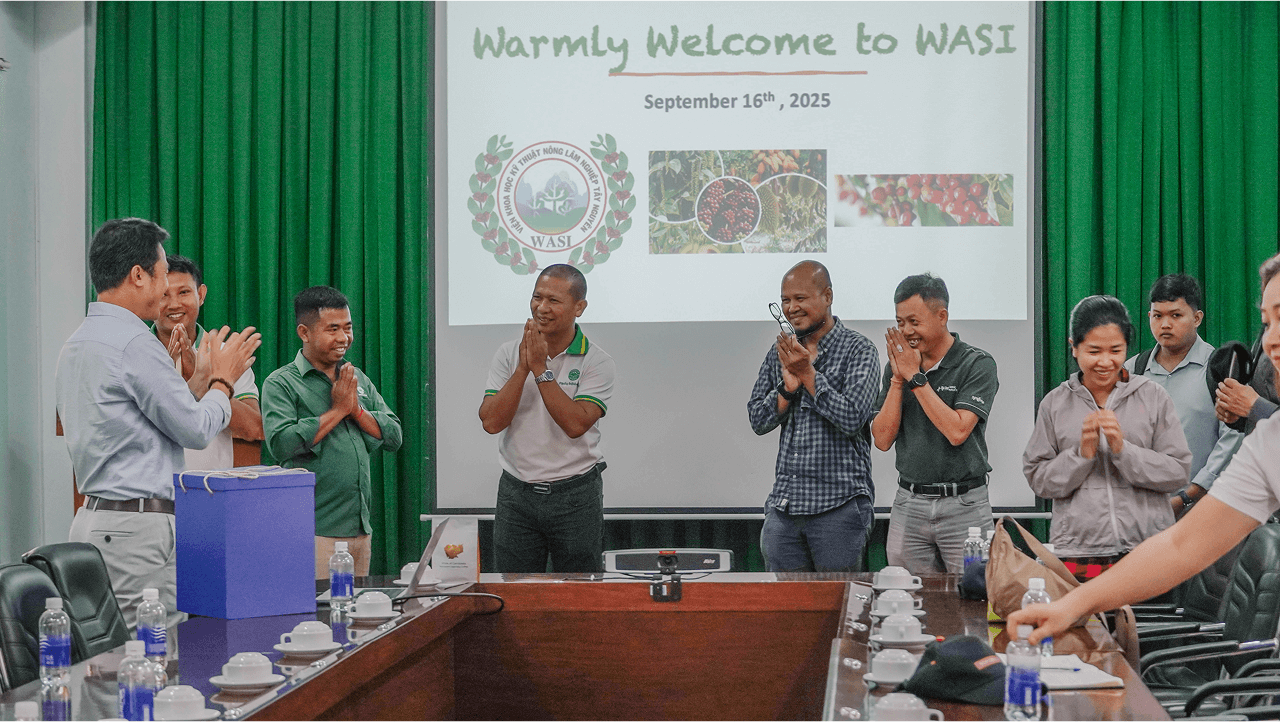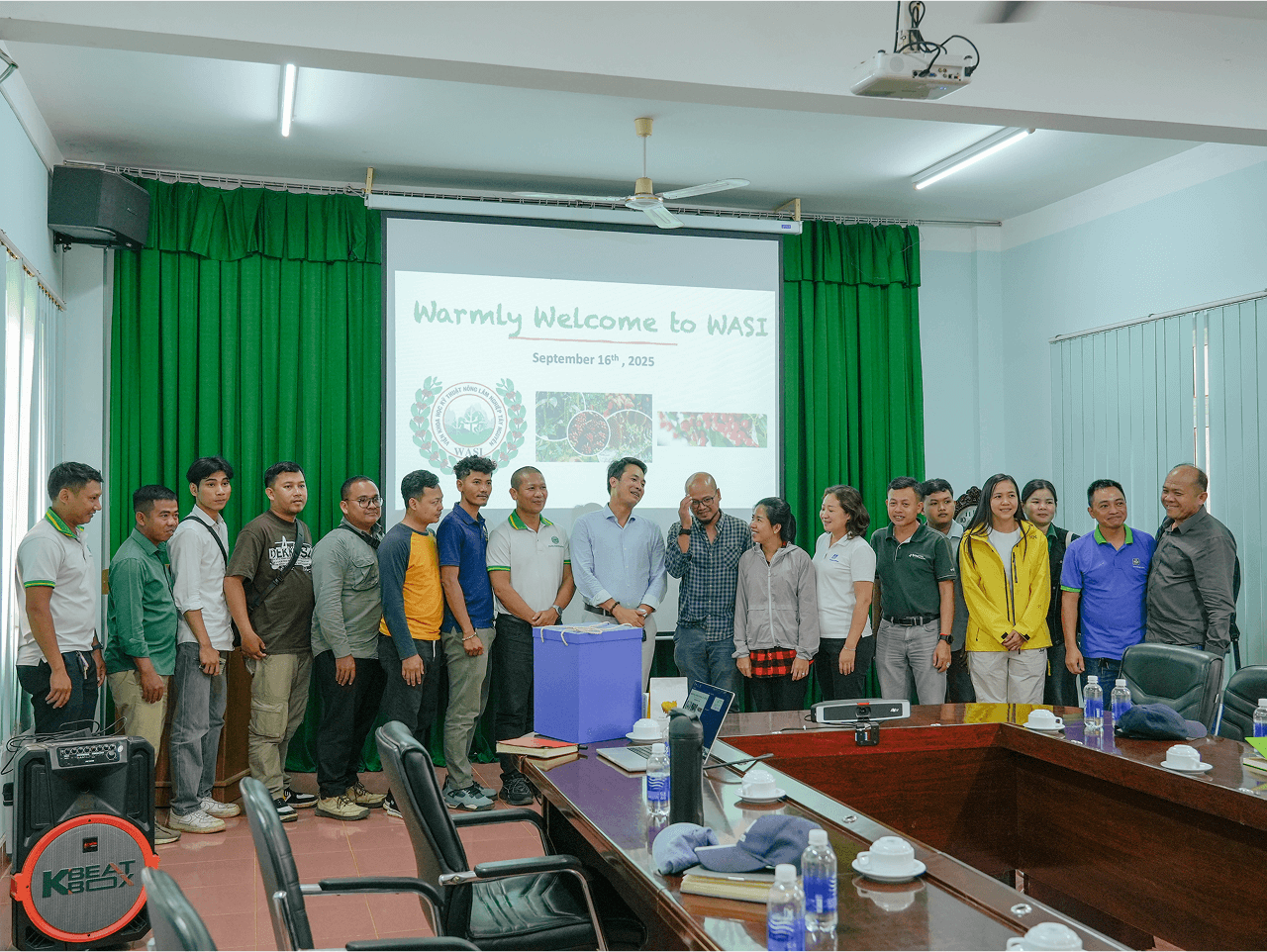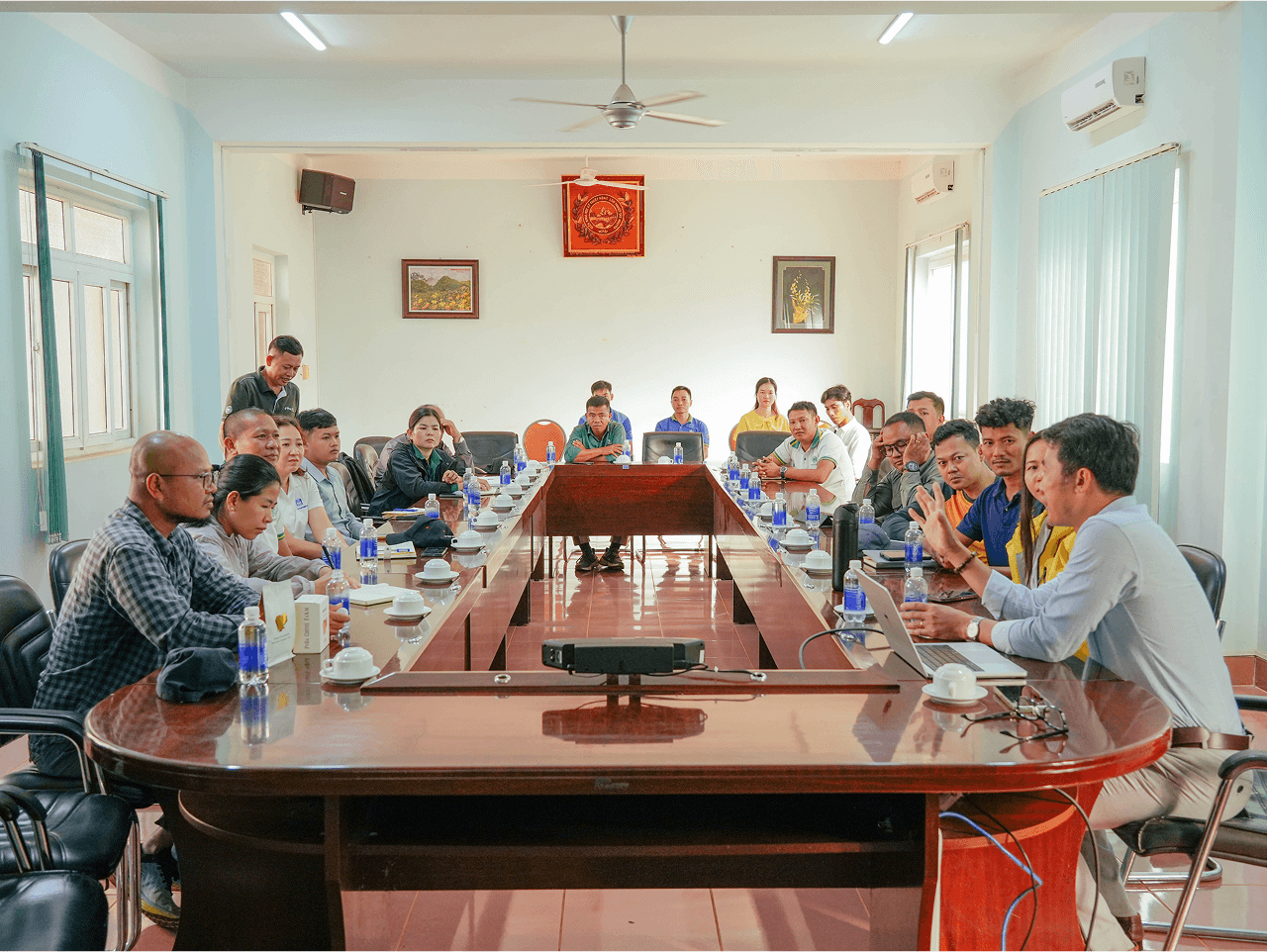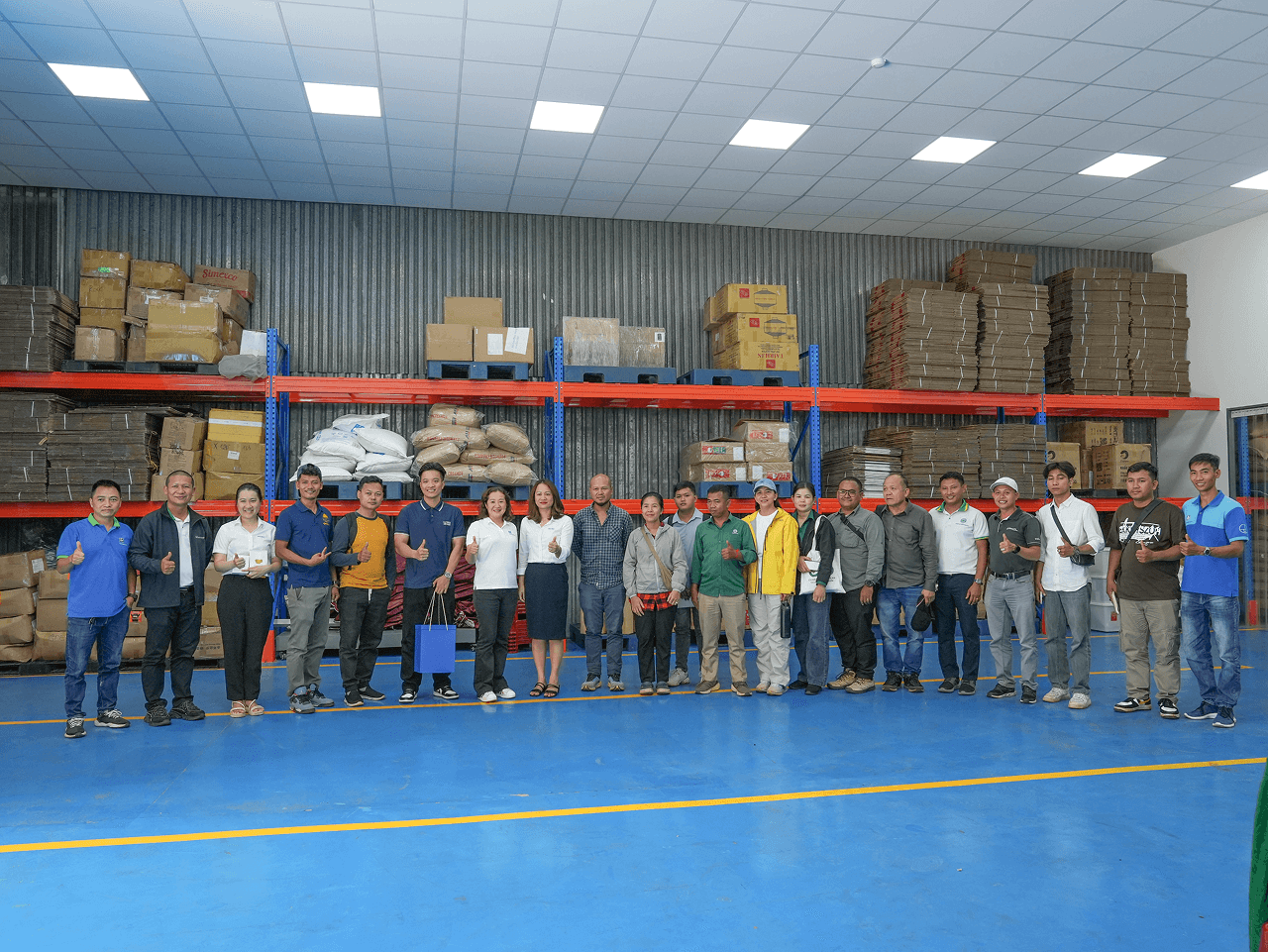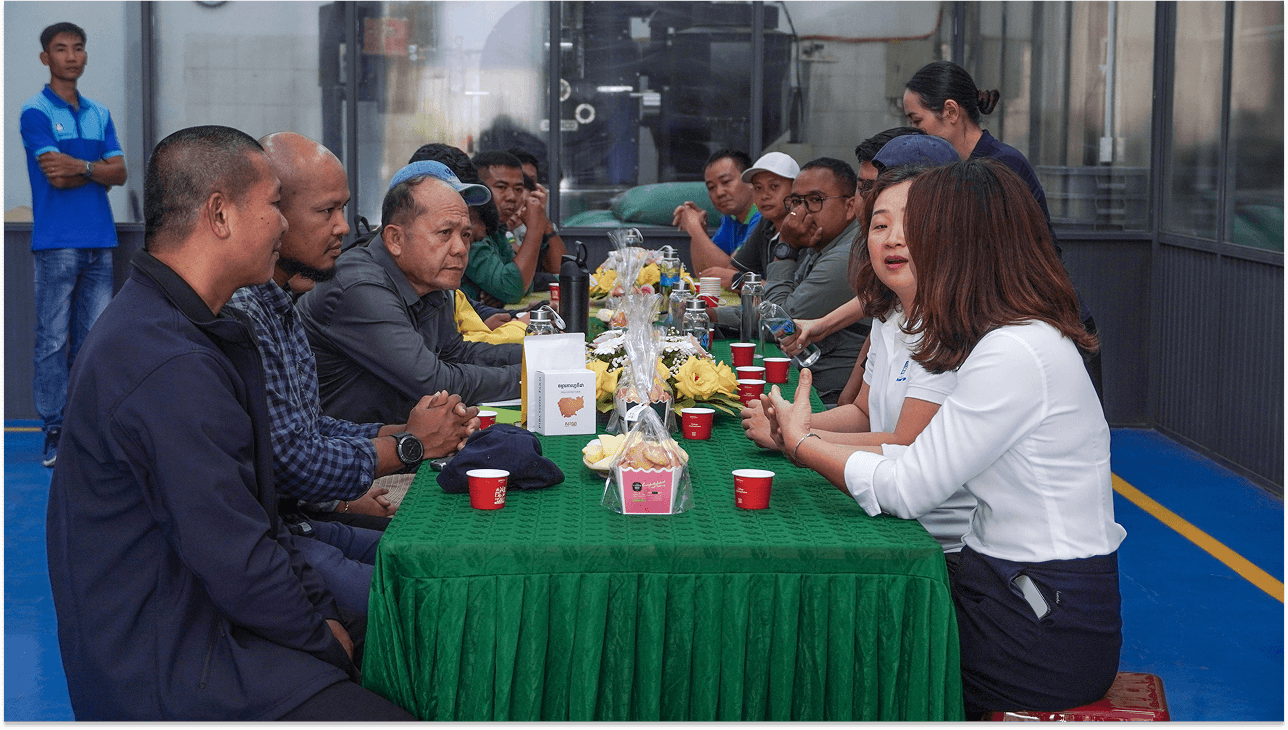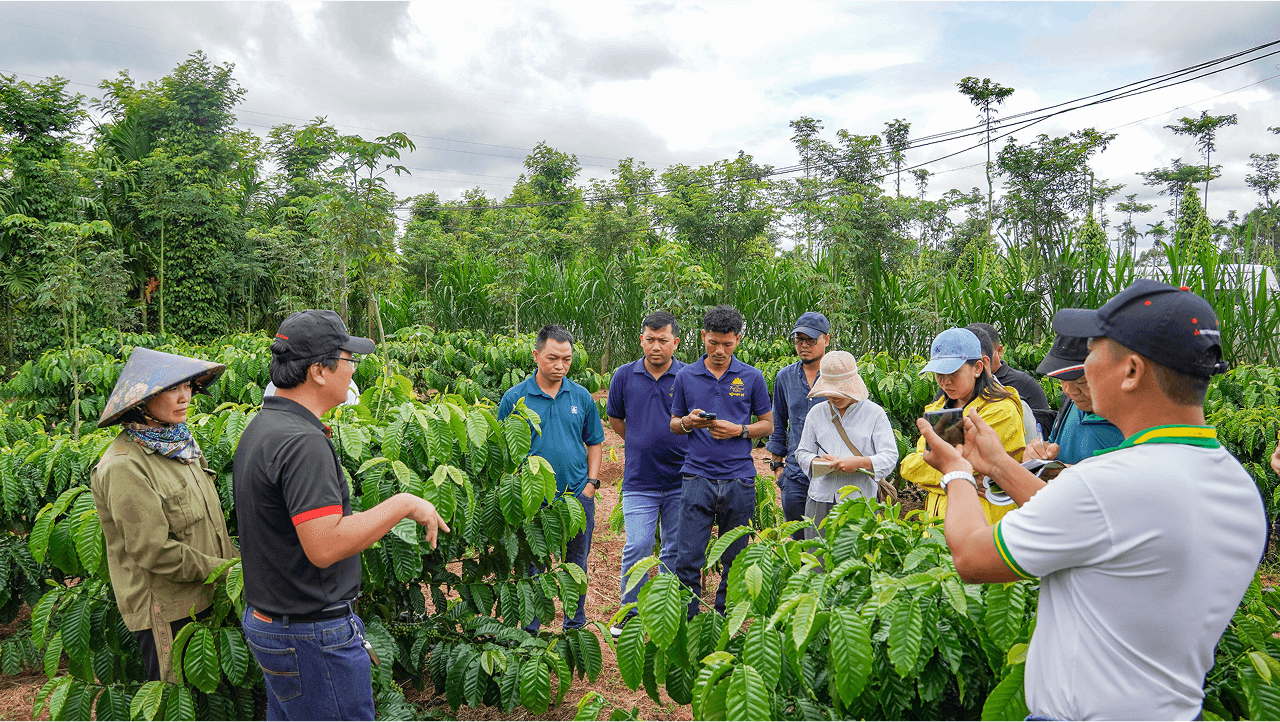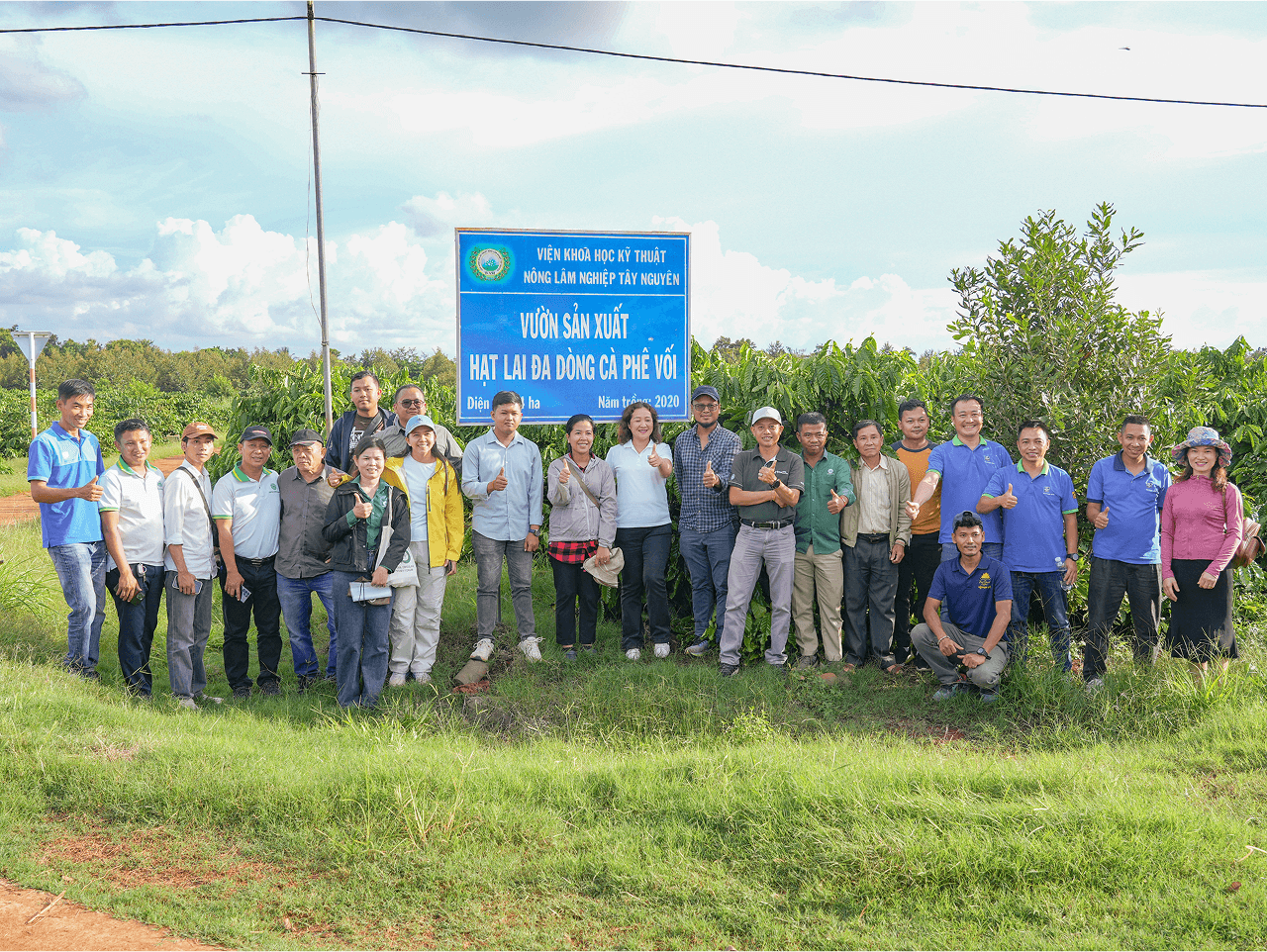
Press Release
Dak Lak, Vietnam – A Cambodian delegation composed of Angkor Green, Yara, and the Cambodia Coffee Association conducted a field study tour at the Western Highlands Agriculture & Forestry Science Institute (WASI) and the Nestlé Coffee Project in Dak Lak province, Vietnam. The visit aimed to exchange knowledge, explore new technologies, and strengthen regional cooperation for the future of sustainable coffee production.
During the program, the delegation was welcomed by senior researchers and technical experts from WASI, Vietnam’s leading agricultural research institute under the Vietnam Academy of Agricultural Sciences. Presentations and field visits highlighted WASI’s key milestones, from its establishment in 1976 to its present role as a national leader in coffee and agricultural research.
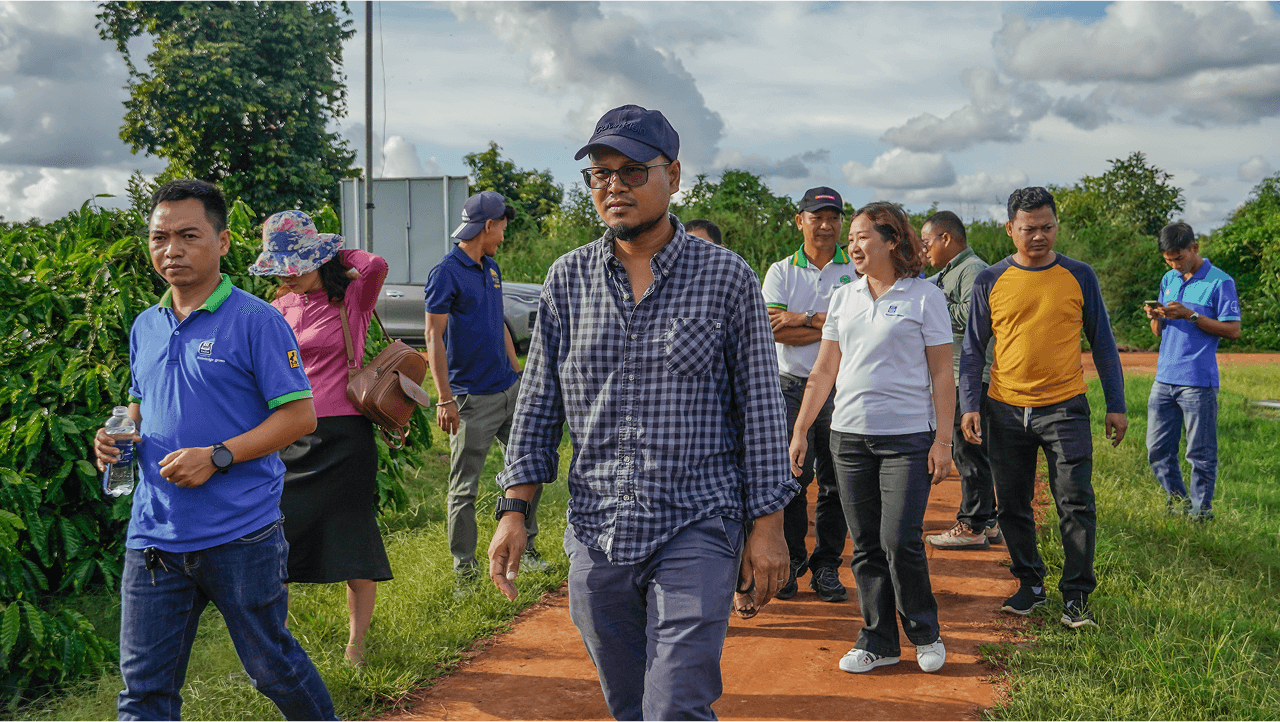
Main focus areas of the study tour included:
-
Coffee Varieties & Breeding: Exposure to Vietnam’s advanced Robusta and Arabica varieties such as TR4, TR9, TR14, TR15, and the synthetic TRS1 clone, which combine high yields, disease resistance, and quality.
-
Sustainable Farming Practices: Integrated soil and water management, intercropping systems with avocado, durian, macadamia, and black pepper, and the adoption of water-saving irrigation technologies.
-
Plant Protection & Processing: Application of Integrated Pest Management (IPM), biological controls, and modern post-harvest techniques such as solar drying and yeast-based demucilage for specialty coffee production.
-
Technology Transfer & Training: Insights into how WASI collaborates with farmers, government, and private companies to scale innovations and build farmer capacity.
The delegation also visited the Nestlé Coffee Project, which has become a model for public–private partnership in agriculture, combining research, farmer training, and sustainability programs that benefit both producers and global supply chains.
This experience provided Cambodian participants with a deeper understanding of how Vietnam has developed into the world’s second-largest coffee producer and the leading exporter of Robusta coffee. The knowledge and lessons gained are expected to support Cambodia’s own coffee sector, particularly in developing high-quality varieties, improving farming practices, and building stronger links between farmers, research institutions, and the private sector.
Speaking after the visit, representatives of Angkor Green, Yara, and the Cambodia Coffee Association emphasized the importance of regional collaboration and the opportunity to apply lessons learned from Vietnam to strengthen Cambodia’s emerging coffee industry.
This joint initiative highlights Cambodia’s commitment to advancing its coffee sector through innovation, sustainability, and international cooperation.
